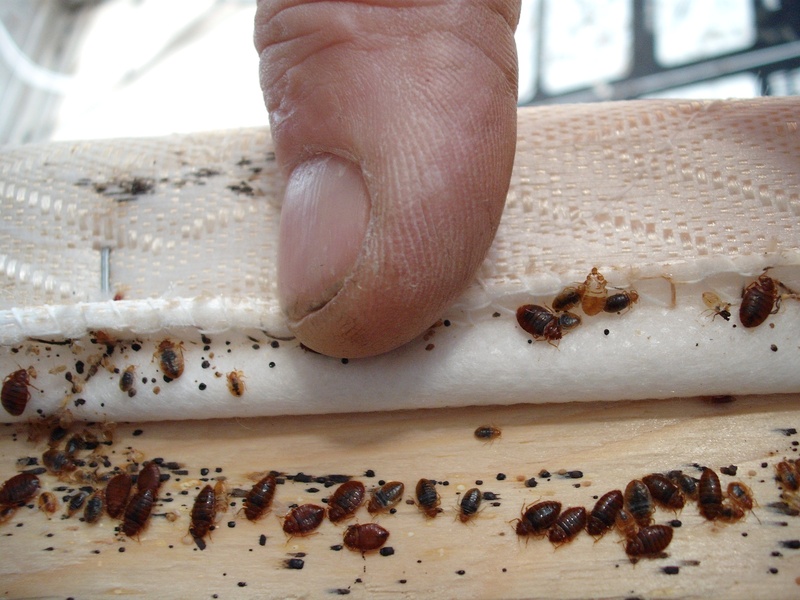The Ultimate Bed Pest Therapy Manual: Professional Insights and Recommendations
The mission for effective bed bug treatment methods has led to a myriad of suggestions and services, some even more reliable than others. From comprehending bed insect behavior to implementing prevention methods and recognizing problems, this extensive guide aims to furnish viewers with the knowledge required to tackle bed bug problems efficiently.

Recognizing Bed Bug Habits
Understanding the intricate behavioral patterns of bed pests is crucial for reliable parasite control techniques. Bed insects, medically referred to as Cimex lectularius, are tiny, reddish-brown parasitical bugs that feed upon the blood of humans and pets. These nocturnal insects are experienced at concealing in cracks and holes near their hosts' sleeping locations, making them testing to discover and eliminate.

Efficient Avoidance Strategies
One of the essential prevention strategies is to regularly evaluate and clean locations where bed bugs can conceal, such as bedding, furnishings, and fractures in wall surfaces. When purchasing second-hand furnishings or clothes, checking items completely before bringing them into the home is critical in preventing bed bug invasions. By integrating these preventative procedures right into normal house routines, individuals can substantially decrease the chance of bed insect problems.
Identifying Bed Bug Problems
Upon getting in an area believed of a bed insect invasion, one may discover small red or brown spots on bed linen or furnishings, indicating the visibility of these bugs. Bed insects commonly leave behind these warning fecal spots as they prey on human blood throughout the evening. One more typical indicator of a bed insect invasion is the visibility of molted exoskeletons lost by expanding bed bugs. These exoskeletons are translucent and can be discovered near their concealing places. Additionally, bed pest bites on the skin, which look like red and scratchy welts frequently arranged in a line or cluster, may suggest an infestation.
A mildewy odor my latest blog post in the room might likewise suggest the existence of bed pests, as these parasites launch scents that result in an unique scent. Evaluating fractures and holes in furniture, walls, and mattress seams might expose actual bed pests, which are reddish-brown, oval-shaped insects about the dimension of an apple seed. Recognizing these signs is essential for very early discovery and efficient therapy of bed insect invasions.
Suggested Therapy Approaches
Reliable bed pest therapy techniques depend on a mix of comprehensive inspection, targeted elimination, and preventive steps to eradicate infestations properly. The initial step in dealing with bed insects is a thorough inspection to identify the extent of the invasion. This commonly includes checking out locations where bed bugs are most likely to hide, such as cushion joints, furniture joints, and electrical outlets. As soon as the infestation is confirmed, targeted elimination approaches can be employed. Typical approaches consist of using pesticides, heat treatments, or cold methods to eliminate bed insects in all life phases. It is important to comply with the guidelines offered by parasite control professionals when making use of these methods to make sure security and performance.
In addition to extermination, safety nets play a vital function in preventing future infestations. This consists of consistently cleaning up and decluttering living rooms, have a peek at this site securing fractures and crevices insect prevention house where bed insects can hide, and utilizing mattress coverings to secure against infestations. By combining comprehensive inspection, targeted elimination, and safety nets, people can properly fight bed pest invasions and maintain a bed bug-free atmosphere.
Maintaining a Bed Bug-Free Environment
After carrying out effective bed bug therapy methods, maintaining a bed bug-free environment needs regular caution and aggressive steps to prevent future invasions. Encasing bed mattress and box springs with bed bug-proof covers can protect against any type of staying bed pests from escaping or brand-new ones from infesting. Sealing splits and holes in wall surfaces, furnishings, and various other potential hiding spots can restrict bed insect motion and stop invasions.
Final Thought
